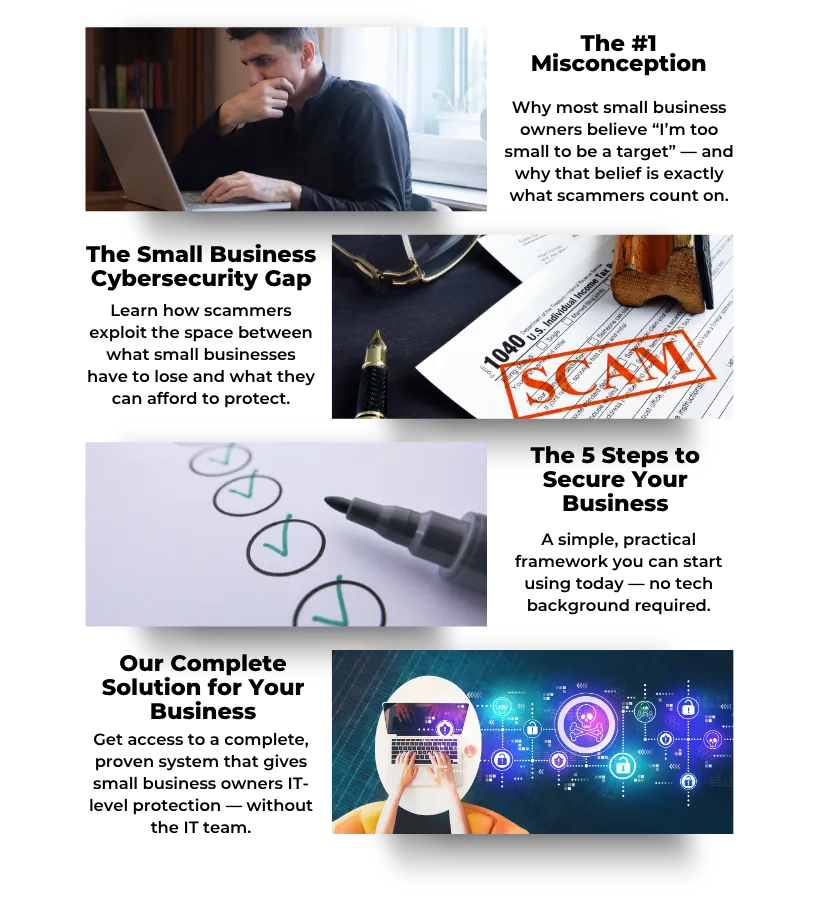Learn the 5 Steps to Scam-Proof your Business
Join 100s of New Founders Becoming Scam-Safe - Includes Checklist + Free Training
What You'll Learn:

Make Your Business Safer
Join the Free Masterclass Today!

© 2026 IDTORO
By visiting this page, you agree to terms and conditions, privacy policy.
This site is not a part of the Facebook website or Facebook Inc. Additionally, This site is NOT endorsed by Facebook in any way. FACEBOOK is a trademark of FACEBOOK, Inc.